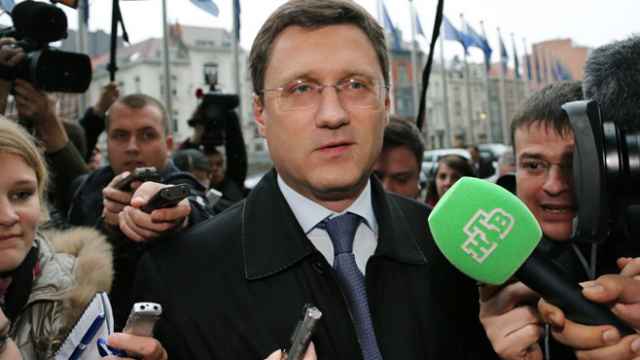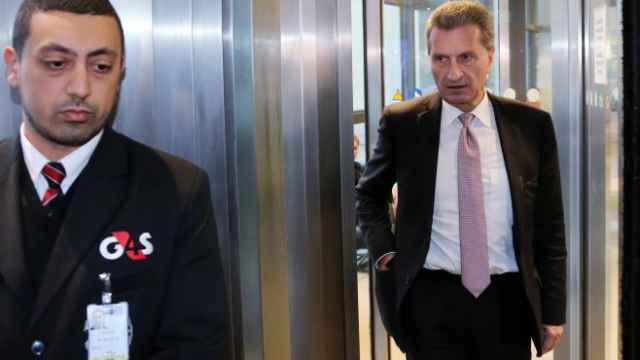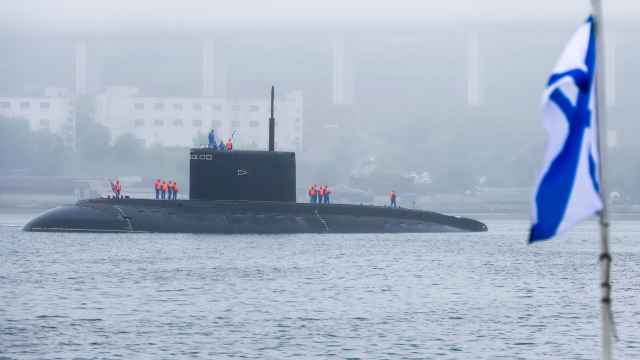WARSAW — Some of Poland's biggest industrial users of natural gas are reducing their use of gas directly supplied from Russia's Gazprom, increasing the amount they buy from other sources.
They join a trend for eastern European countries to cut dependence on Russian gas, hastened by Russia's intervention in Ukraine.
Poland's biggest chemicals firm, Grupa Azoty, and the largest refiner, PKN Orlen each said they were changing the balance of their gas supplies.
They are buying less gas from Polish state-controlled gas supplier PGNiG, which gets almost all of its imported gas from Russia under a contract with Gazprom, and increasing the share of gas bought from either the spot market or by concluding long-term contracts with other suppliers.
For now at least, most of the gas from other sources is still Russian in origin. However, it comes via other routes, mostly from Germany, considered less vulnerable to disruption.
Poland's gas supplies direct from Gazprom are especially precarious because its relations with Moscow are particularly fraught.
The shift to alternative sources is possible because Poland is opening up inter-connectors with neighbors to the West and building a new liquefied gas plant on the Baltic, and also because it has liberalized its wholesale gas market.
According to calculations, plans to diversify supply have the potential to cut Russia's share of the market to as little as 15 percent in the next two years.
Over the Counter
Last year Azoty, which uses huge amounts of gas to make fertilizer, bought 20 percent of its gas from sources other than PGNiG. It said this year that will rise to 30 percent.
"This gas is being bought based on individual contracts signed with foreign contractors. Some quantities we buy on the POLPX power exchange," said Witold Szczypinski, vice-president of the Azoty's management board.
In the future, Azoty wants to source half of its gas needs under a long-term contract with PGNiG.
"The other half we will be buying on the basis of framework and short-term contracts on OTC [over-the-counter] markets and exchanges from a number of suppliers and by using a number of supply directions, including direct import," Szczypinski said.
Reduced gas flows from Russia this month to Poland, Slovakia, Austria and Romania have underlined the need for in eastern Europe to forge its energy independence.
The amount Poland pays for its gas from Gazprom is kept secret, but according to trade sources and Reuters calculations, it has been consistently more expensive than the on the European spot market.
The risk of buying more from the spot market is that prices can rise unexpectedly, while under long-term supply contracts customers are protected from price hikes.
Secure Supplies
Poland uses about 16 billion cubic meters (bcm) of gas per year. Last year 10.9 bcm was imported, of which 8.7 bcm was supplied by Gazprom under its contract with PGNiG.
PKN Orlen, Poland's biggest oil-refiner, has in the past bought up to 35 percent of gas from suppliers other than PGNiG.
"But in the future it may rise due to the development of the gas energy sector and the liberalization process on the Polish market," PKN said in an e-mailed statement.
In February, PKN signed short term contracts for gas supplies with six companies. One of them was a subsidiary of PGNiG. The total value of the contracts reached 1.7 billion zlotys ($510 million).
PKN said it was also present on gas exchanges in Germany and Poland, which allowed it direct sourcing of gas.
The biggest gas consumers have already had supply cuts at least twice in the past, in 2006 and 2009, because of a pricing row between Russia and transit nation Ukraine.
There was also some disruption to supplies in 2012, when a harsh winter forced PGNiG to ask some industrial customers to voluntary cut use. The companies affected were PKN Orlen, and two chemical companies, which are now subsidiaries of Azoty.
A Message from The Moscow Times:
Dear readers,
We are facing unprecedented challenges. Russia's Prosecutor General's Office has designated The Moscow Times as an "undesirable" organization, criminalizing our work and putting our staff at risk of prosecution. This follows our earlier unjust labeling as a "foreign agent."
These actions are direct attempts to silence independent journalism in Russia. The authorities claim our work "discredits the decisions of the Russian leadership." We see things differently: we strive to provide accurate, unbiased reporting on Russia.
We, the journalists of The Moscow Times, refuse to be silenced. But to continue our work, we need your help.
Your support, no matter how small, makes a world of difference. If you can, please support us monthly starting from just $2. It's quick to set up, and every contribution makes a significant impact.
By supporting The Moscow Times, you're defending open, independent journalism in the face of repression. Thank you for standing with us.
Remind me later.





